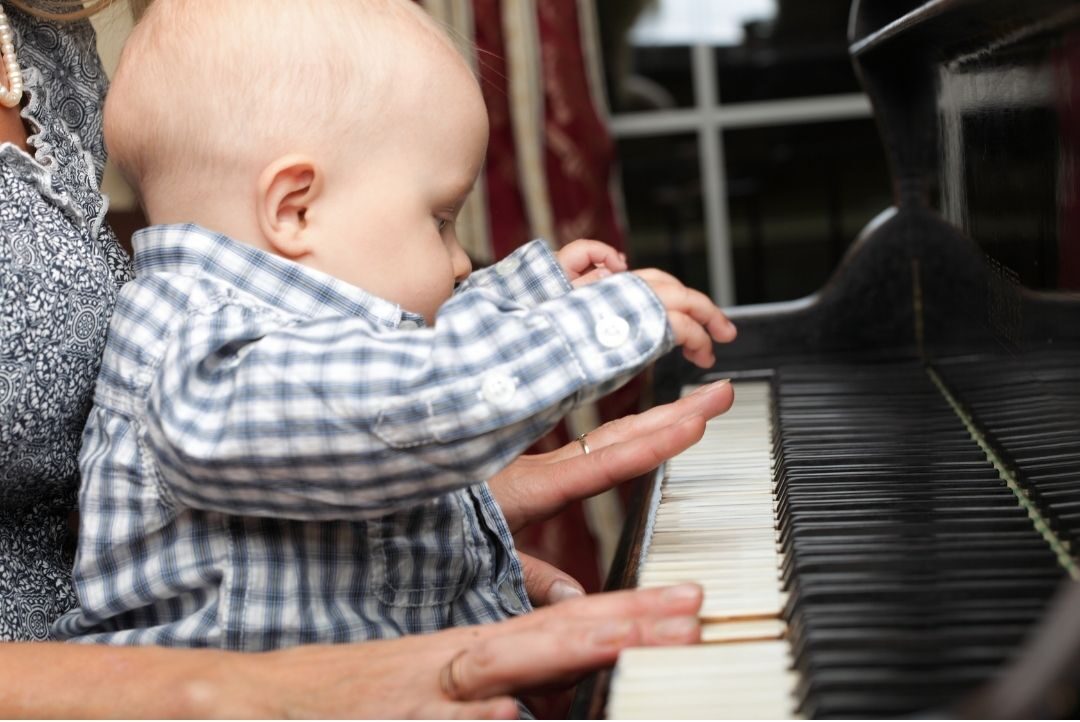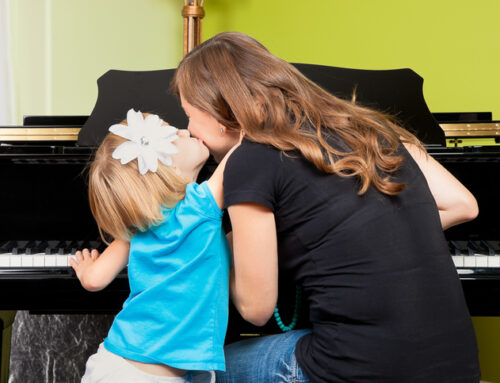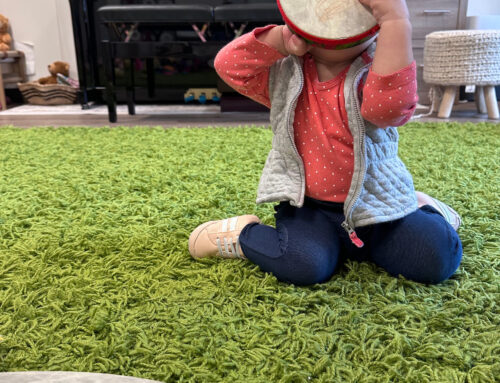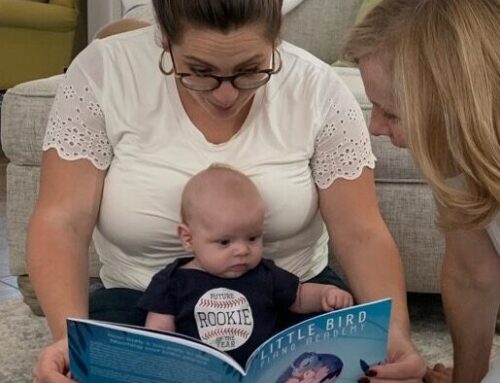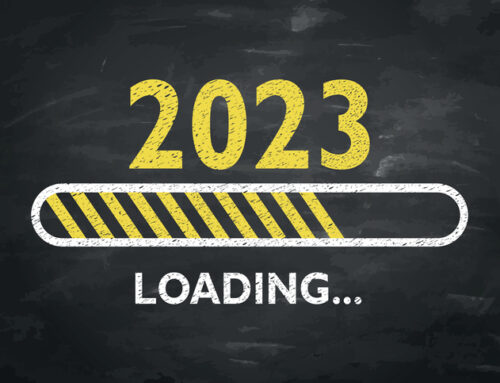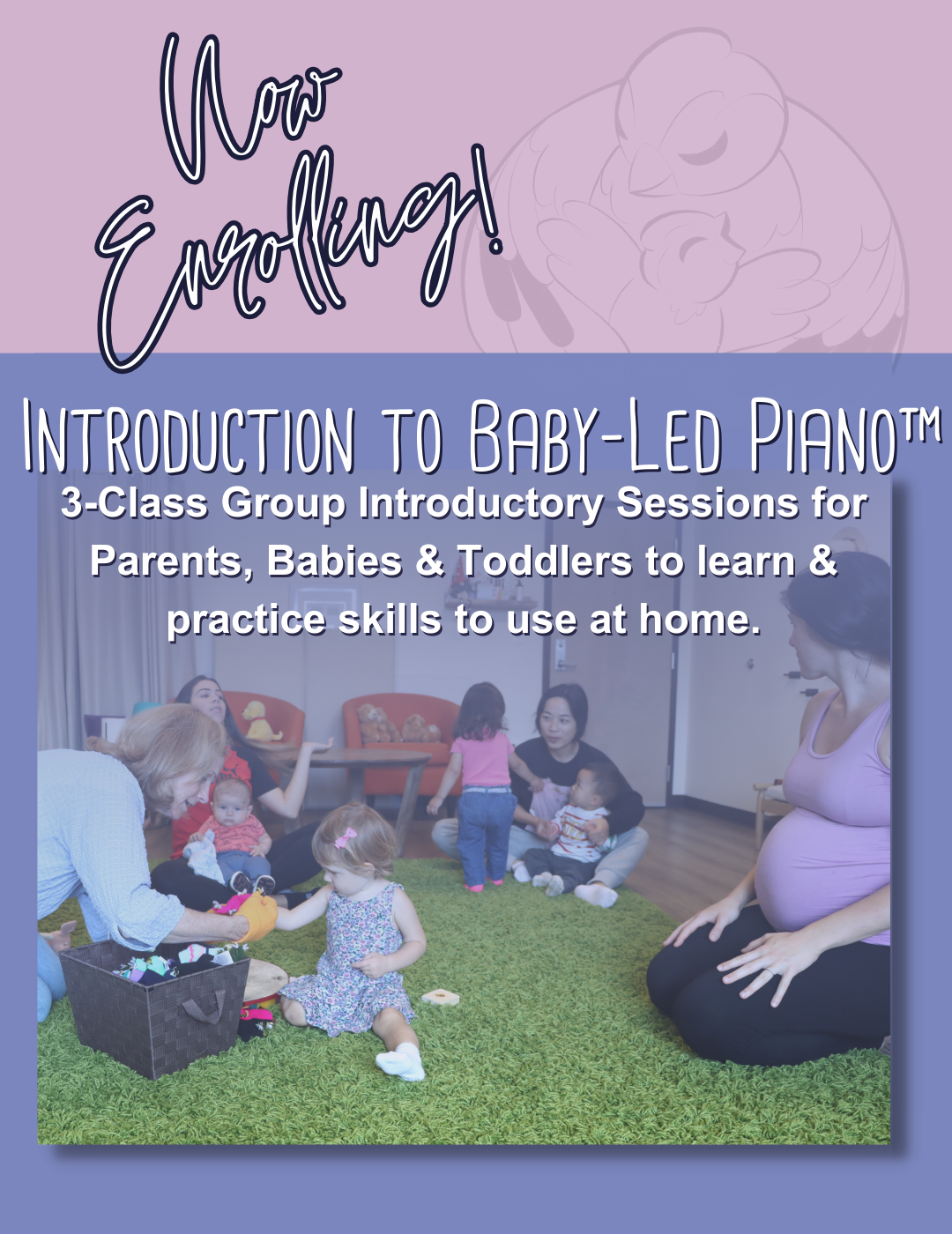eople always ask me, “Why do you teach babies – aren’t they too young to pay attention?”
I often see people struggling with the Grand Staff, trying to memorize the names of all the keys on the piano, and trying to put the two together to play songs they’ve heard. It can be a really confusing way to start learning music. And definitely too hard for a baby! I can see why people would think babies won’t get it – piano teachers have refused to teach young children for centuries.
You’d think most very accomplished musicians would realize that they began learning music as babies. The truth is, most really accomplished musicians can’t remember how they first learned music, because it mysteriously happened before they had words. In the musical homes in which many highly successful musicians are raised, the process has happened quite by accident.
Sitting still and paying attention isn’t required for learning to talk, learning to walk, or a million other things babies learn. As long as they feel safe, and are given new things to learn, babies take it all in. Babies love to learn! Have you ever watched a baby play?
I grew up in a home where I was immersed in the language of music by my older siblings and by my parents. We had so much fun singing and playing the piano together! It was a great way to connect heart to heart!
I’ve spent a good portion of my life trying to figure out how to duplicate the experience I had as a young child so that parents could teach music to their babies in a simple, straightforward way, from home, on purpose!
Many years ago I watched a video (well actually I’ve watched it a lot because it was so fascinating) of Leonard Bernstein talking about the fundamentals of talking. How babies naturally say “aaaahhh” because air’s coming out of their lungs and their mouth is open. Then they naturally say “mmmmm” because they’re breathing out with their mouths closed. Then one day the baby puts these together and they’re saying something like “mama” or “amma” or something similar using aaahh and mmmm. He said that in most cultures, this became the word for the primary caregiver of the child. I thought this was so interesting. It got me wondering, what is That kind of fundamental thing that babies need to learn music? We’ve known for a long time that music helps brains develop, but there’s so much more now with magnetic resonance imaging, and psychological studies on babies and brains and social and emotional benefits. I could go on and on about that. But the long and the short of it is, Babies would benefit so much from a great musical education! This would affect their whole lives!
I was trained in piano pedagogy for kids starting at age 3, and was teaching group classes to 3- and 4-year-olds with some success. I used this method to teach my own kids. One thing bothered me though. At the end of class the moms would come to pick their kids up, and I would hurriedly hand them the materials from the day’s lesson and try to explain to the moms how to practice the coming week with their kids. It soon became painfully clear that the moms had no idea how to help their kids during the week, so their lessons were not as effective as I had hoped. The moms needed to attend the classes with the kids!
So moms started coming to class with their preschoolers, and often they had a baby in tow. What I knew from the start, and what became more and more evident as the years passed, was that the babies were the ones who benefited the most from piano class. Their brains were more open to learning music than even their 3- or 4-year-old siblings. And they had a mentor at home, their preschooler sibling, to inspire them. And they saw their moms and their bigger brothers and sisters having fun with music! They wanted to join in the fun!
That really got me started wondering, “How can moms and dads intentionally teach these babies instead of them “happening to catch” what was going on?” I mean, this was a good thing. But what about babies who didn’t have an older sibling to tag along with? What about parents who aren’t musically trained? What about all those first-borns? And, can it be even better?
After many years of research, experimentation, and trial-and-error, I have learned that there are specific things that come before ABC and Do-Re-Mi, that babies can totally learn, and that all parents can teach their babies – regardless of the parents’ musical background.
The most important thing I’ve learned is that the language of music is the best way for parents to connect and communicate with their children.
These are the things I teach parents in Baby-Led Piano:
- How to Deeply Listen To Your Baby to create safety, connection and empathy
- How to Sing Your Baby’s Songs
- How to introduce new songs to your baby
- How to learn music notation with your baby
- How to play the piano with your baby And…
- How to have fun creating your own music
Whether or not you have a musical education, you can follow these step-by-step video instructions and start to develop a wonderful connection with your baby through the very powerful language of music.

